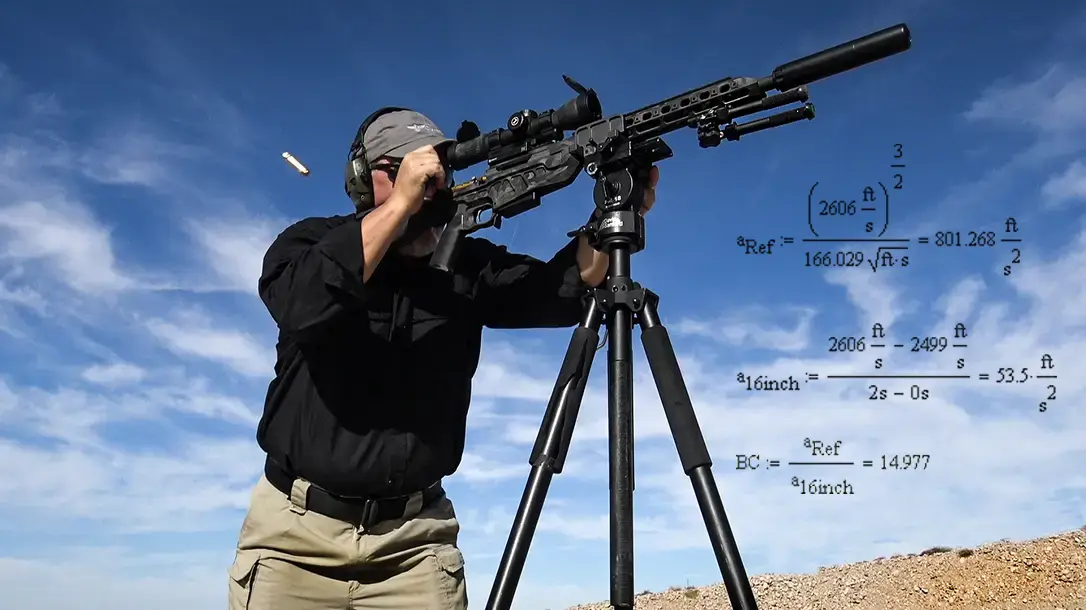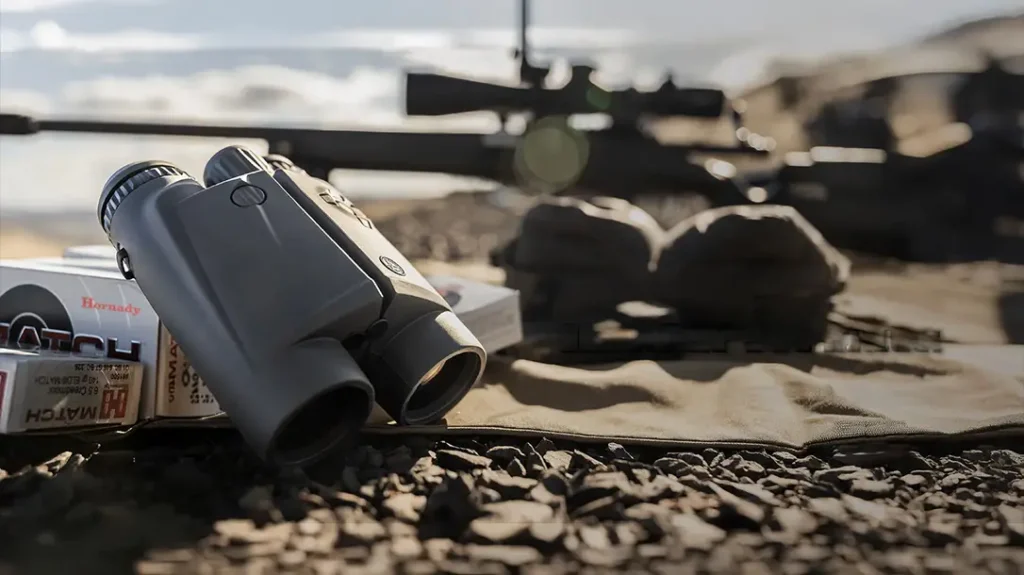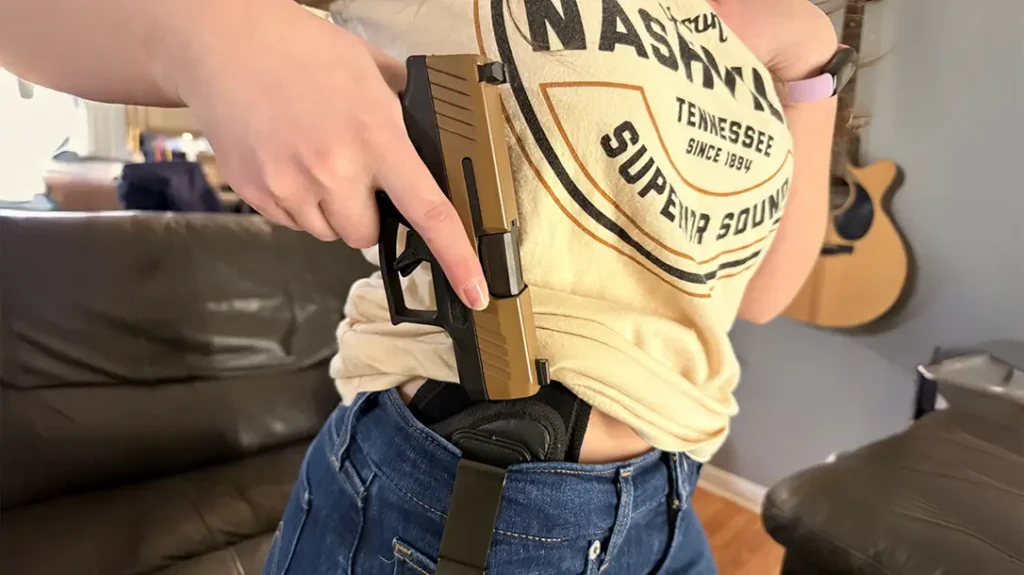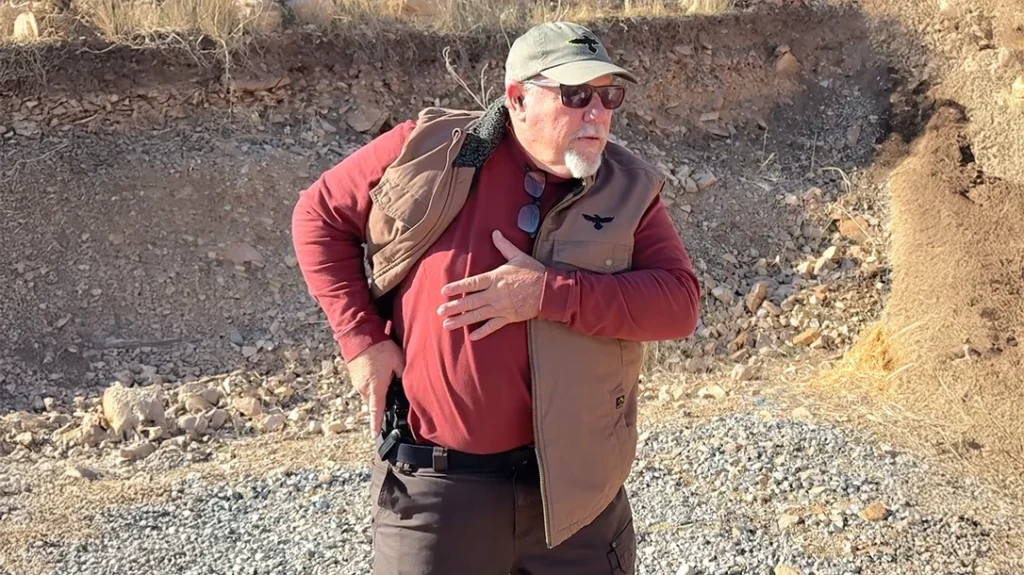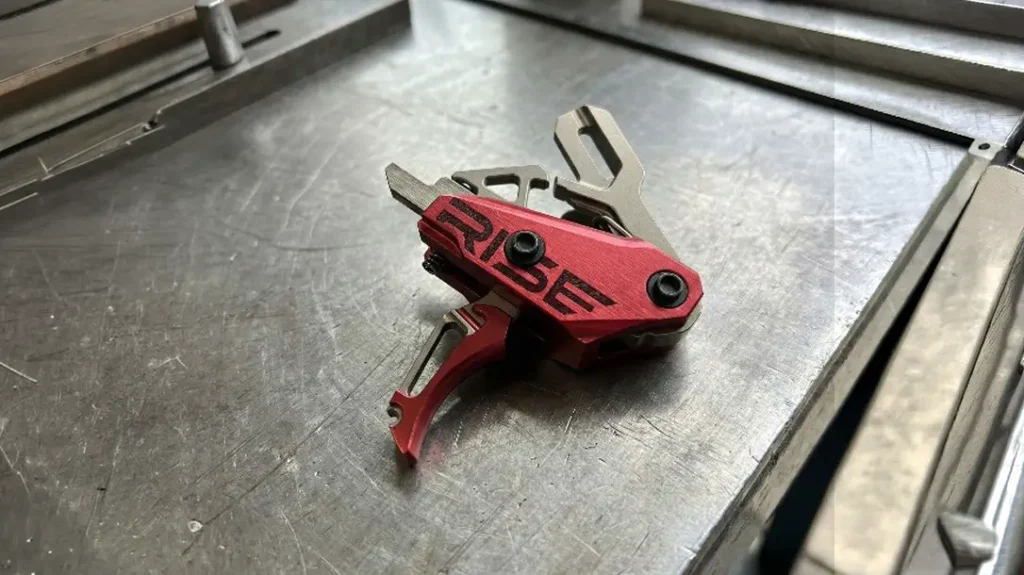Few areas of the firearms world have experienced the growth and interest that the long-range world has. As with any quickly growing segment of the gun world, though, many people are interested but hover on the outside. One of the biggest barriers is understanding just what everyone is talking about. Long Range Shooting Terms can sound like a foreign language.
If you are to enter this field, though, you will need to understand the lingo and what it means. Fear not. With a few minutes of explanation, I can have you speaking long-range like a pro. So, let’s look at some of the most common lingo you will experience in Long Range Shooting Terms!
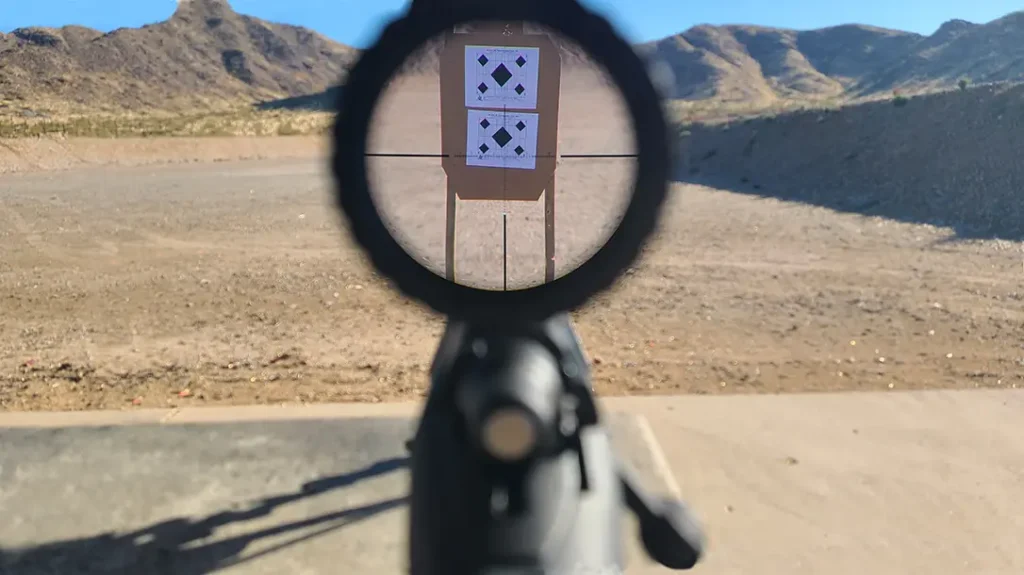
Advertisement — Continue Reading Below
Learn the Language of Long Range
Ballistic coefficient
This term, usually abbreviated to “BC,” refers to the aerodynamics of your bullet. Generally, the higher the number, the less drag the projectile will experience. Now, understand there is more to this, but it is at least a starting point in Long Range Shooting Terms.
BTHP
Advertisement — Continue Reading Below
Boat Tail Hollow Point. This is a bullet with a boat-shaped tail and a small hollowed-out point. These are the most common style precision bullets in Long Range Shooting Terms.
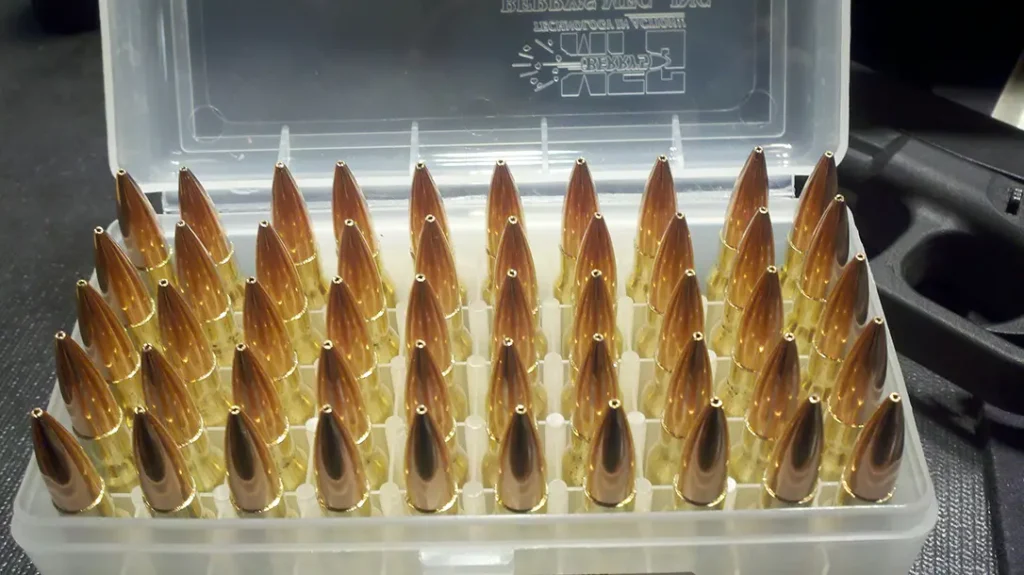
DOPE
Advertisement — Continue Reading Below
DOPE is an acronym for “data on previous engagements.” This is a logbook you build detailing your gun and ammunition’s performance in different situations. Many people have this data for multiple areas depending on things like elevation and weather.
External Ballistics (EB)
EB is the part of ballistics that deals with the behavior of a projectile in flight. Factors that affect this behavior include air resistance, gravity, and angle of fire. Understanding these Long Range Shooting Terms is crucial for accuracy.
Advertisement — Continue Reading Below
Common Long Range Shooting Terms
Glass
This is a slang term for optics or scopes.
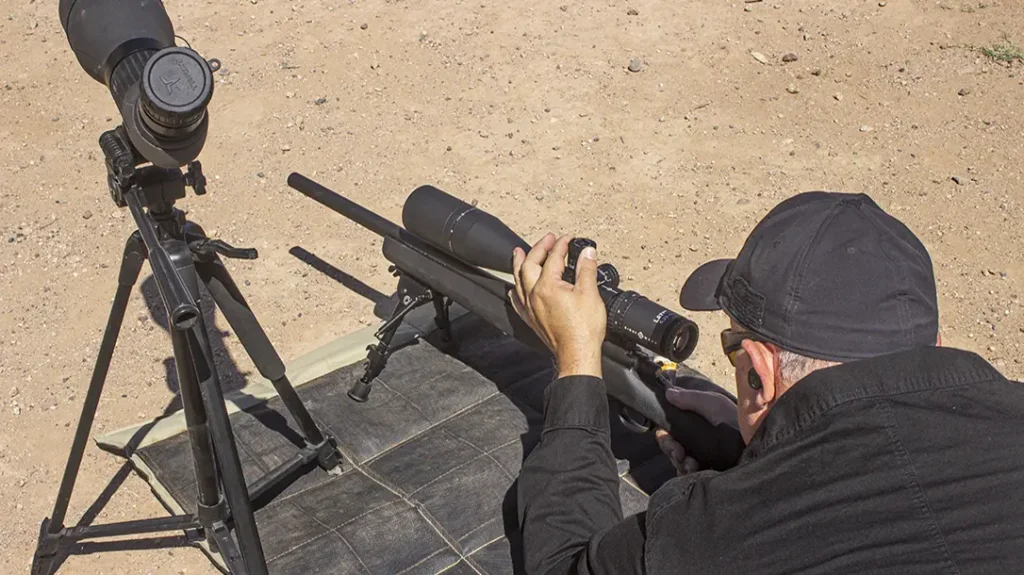
Advertisement — Continue Reading Below
Hold off/Hold over
Refers to aiming high, low, left, or right of the intended target. Spotters sometimes tell the shooter to “Hold left edge” or use a similar command. This is just telling the shooter that they actually need to aim off the center of the target.
Mil
Advertisement — Continue Reading Below
This is a military-based reticle and ranging system. 1 Mil is about 36″ (or 1 yard) @ 1000 yards or 3.6 inches at 100 yards. This is a common scope adjustment for elevation and windage. Modern scopes usually have an adjustment of .10 Mil per click.
MOA – Minute of angle
Like Mil, this is a measurement of the object at distance. It is essentially one inch at 100 yards. Like the Mil adjustment, it is a common scope adjustment for elevation and windage. The most common adjustment we find is ¼ MOA adjustment per click.
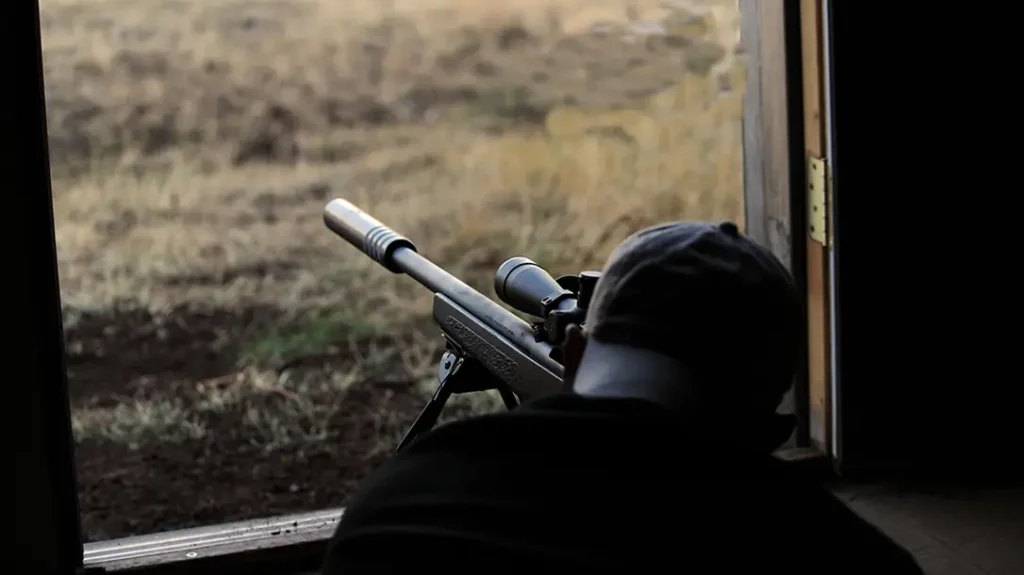
Mover
A target that is designed to move as part of the drill or competition.
Spin Drift
Spindrift is a phenomenon caused by the right-hand twist in rifle barrels. Due to the right-hand twist, the nose of the bullet tends to offset slightly to the right during flight. The effect is that even under zero wind conditions, the bullet will impact to the right of the center. The effect is more pronounced at ranges beyond 600 yards.
Communication Terms
Spotter up
The spotter uses this term to let the shooter know they are on target. Once a spotter has settled in and acquired the target, they will announce this.
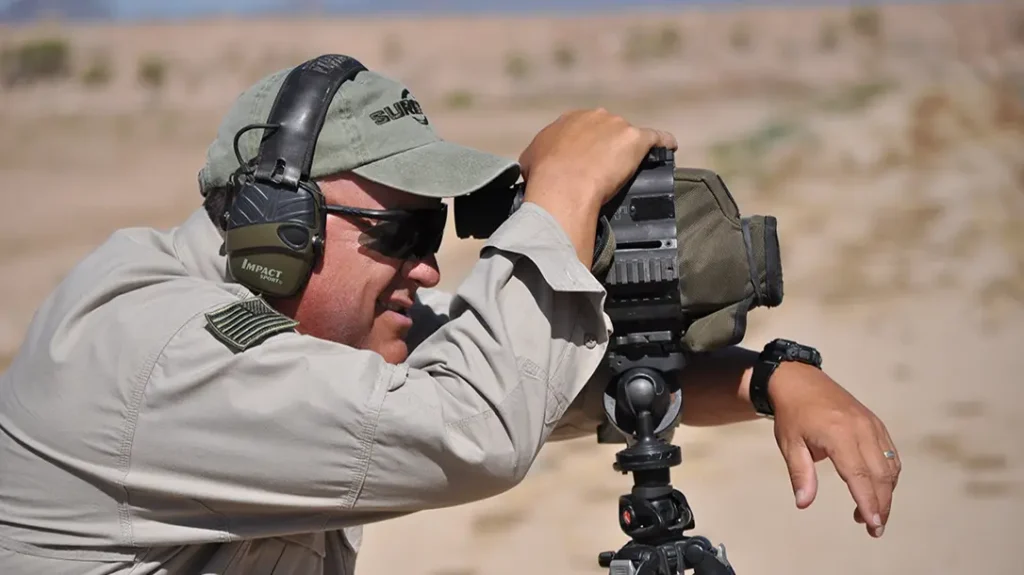
Send it
The spotter uses the phrase to tell the shooter to take their shot now. This command is used after you hear “spotter up.”
UKD
Unknown Distance. When you are in a situation where the distance to the target has not been provided, these ranges are common in competitions and sniper courses.
Zero
Where the scope and rifle are set to hit a bullseye without any changes to the turrets or use of holdover, most zeros will be set at 100 yards.
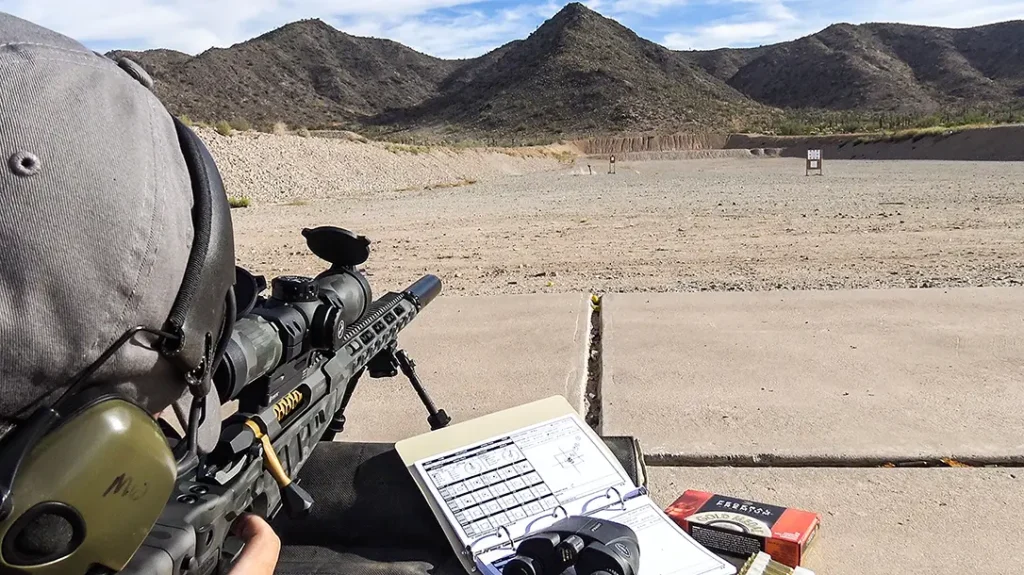
Speak the Language in No Time–Long Range Shooting Terms
These are a few of the more common and confusing terms you will run across in long-range precision shooting. One prevalent trait in the arena is friendliness among shooters. I say this because if you are unfamiliar with something or uncertain about a term, just ask. Serious shooters will be quick to help because they also remember the days when they were just starting. Understanding Long Range Shooting Terms will help you integrate faster.
For more information visit: https://www.gunsite.com
